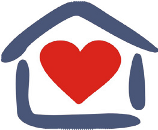The Family Model
The Family Model is the key to Casa Hogar’s success. As noted above, the family-style living gives our children an environment completely different from the more traditional orphanage. In addition to the family-style living, the Family Model provides the children with a structured path to learning social skills and tracking their advancements.
For over ninety years, Boys Town has been a refuge of hope for wayward and orphaned children. Its family-based teaching model has been hugely successful in modifying and forming child behavior using scientific methods coupled with human compassion. The success of the Boys Town model is largely due to the perspective that modification needs to happen by helping troubled youth to learn and replace bad behavior with good behavior.
In mid-2009, Casa Hogar was given the rights for the use of the Boys Town Program under their own name outside the United States. Adapted to meet cultural needs, the program is immediately available for use in Spanish. All training material and resources have been translated, and a training program established. The model is comprised of five components, providing the well-needed balance for child development. They include:
Teaching social, academic and independent-living skills
Helping build healthy relationships
Empowering youth through the development of self-government
Fostering values and spirituality
Living in a family life-style
Building Healthy Relationships
In addition, helping the kids build healthy relationships is key to their success. Because of their past, so many of the kids have not experienced what a real family is like; what friendship is; what a relationship with the opposite gender should entail, etc. Abuse, poor role-modeling, TV content, and lack of morals leads little to the imagination.
Unfortunately, from years of living or witnessing the aforementioned, the kids are doomed to repeat these destructive cycles. Using the Family Program, the kids are taught the differences between healthy and unhealthy relationships as well as how to detect if a relationship is heading in the wrong direction. The children learn proper boundaries in terms of their bodies, possessions and opinions, and are taught to respect these boundaries. This gives each child not only a sense of pride of who they are, but it also provides them with a sense of security and self-respect.





